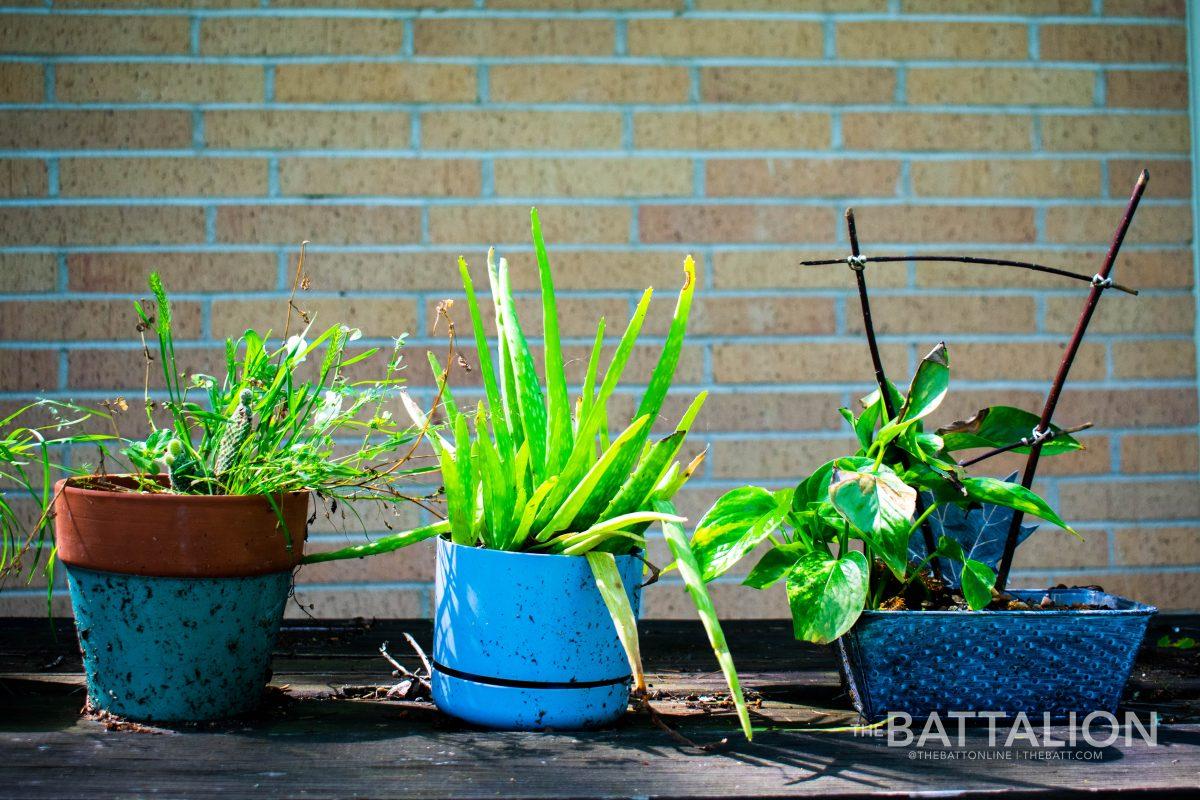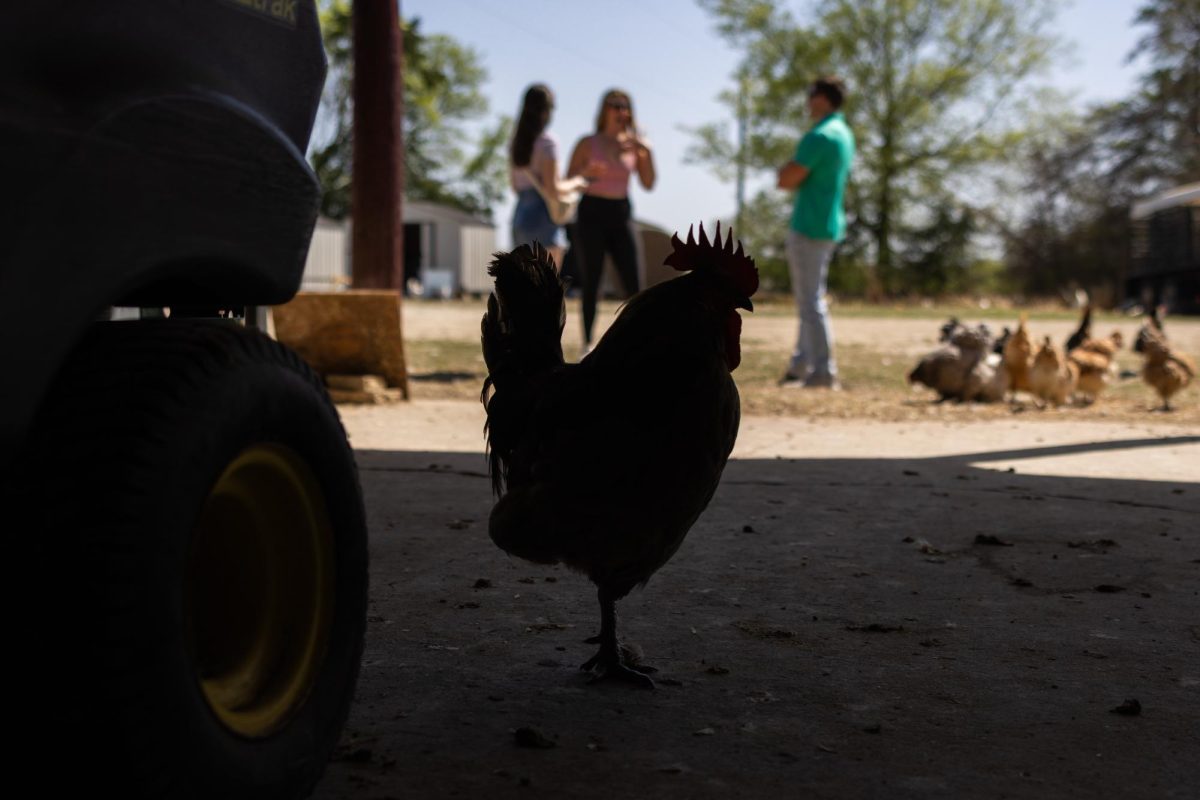Students who spend time around plants can receive more benefits than just being accompanied by pretty scenery.
Plants offer various emotional and psychological benefits to humans by reducing levels of the stress hormone cortisol within the body. When people are surrounded by a calming influence, such as greenery, research shows happiness increases, which can increase concentration and promote healing.
Horticulture Professor Charles Hall, Ph.D., has researched the health benefits of plants for over 12 years. Hall said the effect house plants have on our health is comparative to spending time outside in nature.
“In terms of if you’re in that natural setting for 20 minutes, you have the same benefits of if you’re out there for two hours or three hours,” Hall said.
There are other ways to mimic the outdoors while being inside. Although they may be more expensive, Hall said artificial plants will provide some of the same benefits as live plants depending on how realistic the fake plants are.
“I’ve seen some fake plants that I have to go up and ask to actually touch the leaf and to tell the difference,” Hall said. “They’re that good. There’s a trade-off there, in terms of economics, but no, they do have the same effect on you.”
The horticulture department offers classes, such as floral design, to teach students about sociohorticulture benefits in a creative setting. Horticulture junior Sophie Malis said the weekly design lab offers a great stress relief. Then, when she takes her arrangement home, she’s able to continue to reap the benefits by having plants on her counter.
“I get stressed when I’m making it because I’m worried about the professor watching and making sure that I’m applying the elements of design and stuff,” Malis said. “At the end of it, I’m always really happy, especially when he says that it’s good.”
Malis has been able to turn her in-class activities into quarantine fun by making floral arrangements with plants from her backyard. By bringing outdoor plants inside, her flowers are doing double duty, which helps Malis stay busy and not bored.
“It’s just fun cause I got my parents hyping me up,” Malis said. “They’re like ‘Wow that looks so good.’ And I’m like ‘This looks awful.’”
Biomedical science junior Emily Cheong began buying plants when she was a senior in high school. Cheong, who has bad allergies, said one of the first plants she was attracted to was aloe vera because of its ability to help minimize allergens in the air.
“I know it’s doing good things for my room, and then, of course, I’m providing good things for them,” Cheong said. “It was just like, ‘Hey we’re benefiting each other.’”
Students with busy schedules, such as Cheong, may benefit from taking care of plants because of their ability to reduce stress. Cheong owns about 13 plants and said having something pretty to look at helps her study in her room.
“I love bringing in that green without bringing in all of the mosquitoes and all of the crazy winds blowing all your papers away while you’re studying,” Cheong said
Though some may shy away from the responsibility of taking care of a plant, Hall said the benefits that are obtained from the plants outweighs the stress that you may get by taking care of it.
“I always tell people, ‘Look, I grew up in the nursery business, I almost single-handedly support the industry here in Texas, I’ve killed more plants than any of y’all,’” Hall said. “I’ve killed more plants than I can count. Plants aren’t designed necessarily to live forever.”
Planting seeds of joy
April 20, 2020
Photo by Photo by Abbey Santoro
Students are able to lessen their stress levels by adding plants to their homes or spending time outside.
0
Donate to The Battalion
$2065
$5000
Contributed
Our Goal
Your donation will support the student journalists of Texas A&M University - College Station. Your contribution will allow us to purchase equipment and cover our annual website hosting costs, in addition to paying freelance staffers for their work, travel costs for coverage and more!
More to Discover










